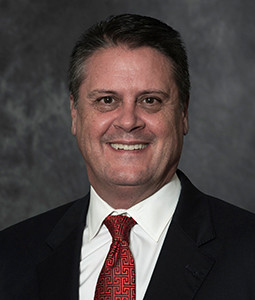
Stephen J. Cutler, Ph.D.
Dean, College of Pharmacy
The dean of the College of Pharmacy reports to the executive vice president for Academic Affairs and provost, providing academic and administrative leadership.
The dean enhances the college's teaching, research, and service excellence while articulating its mission to all stakeholders. Key responsibilities include leading research initiatives through government funding, private partnerships, and industry collaborations; recruiting and retaining faculty while fostering excellence in teaching and research; managing finances, student services, human resources, and facilities; ensuring program quality through curriculum development and accreditation compliance; strategic planning and performance evaluation; fundraising and partnership development with donors and alumni; overseeing student recruitment; and creating an innovative, entrepreneurial environment.
The dean advances the college's vision of transforming health care through education, scholarship, collaboration, and entrepreneurship to benefit local, national, and global communities.






